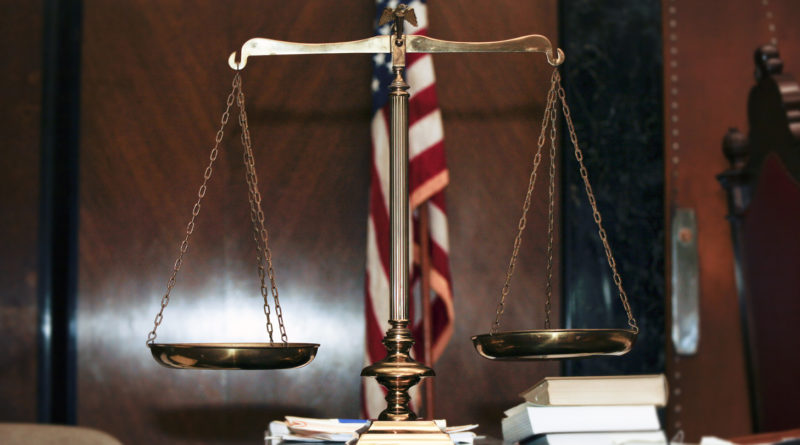Criminal Justice studies program hosts Death Penalty Abolishment panel
Death Penalty Abolishment panel hosted by UD Criminal Justice Studies program, stock photo of justice scale courtesy of Wikimedia Commons.
Carolyn Kroupa
Contributing Writer
The Criminal Justice Studies Program hosted a webinar entitled “Journey of Hope: Death Penalty Abolishment” co-sponsored by the Fr. William J. Ferree Chair of Social Justice and the Human Rights Center.
The webinar, which took place Tuesday, Dec. 1, was attended by over 600 people including UD students and the public. This event was an opportunity to reflect on personal values and the death penalty as panelists discussed their first-hand perspectives.
In a poll at the beginning of the event, 61 percent of attendees responded that they do not support the death penalty while 21 percent responded that they do support it. Nineteen percent were unsure.
The closing poll reported that 80 percent of attendees believed that the death penalty should be abolished.
Bob Stoughton, retired research administrator for Montgomery County Human Services Planning and Development Department and the Fitz Center for Leadership in Community, was the first panelist.
He is a current member of the Death Penalty Abolition and Restorative Justice team at the Marianist Social Justice Collaborative. The team’s current projects include a death penalty and restorative justice discussion guide, advocating for the abolition of the death penalty across the U.S., collaborating with the Catholic Mobilizing Network and circle process training. The circle process is the beginning step to restorative justice and involves mutual healing for all involved.
Stoughton stated that “[the] death penalty is criminal revenge,” rather than criminal justice. He believes there is always a possibility of redemption, so the answer is not to take away another life.
Rev. Dr. Crystal Walker was the next panelist to speak about her stance on the death penalty. In 2013, she received a call at 2:30 a.m. that her 28-year-old son had been murdered. She recounted,
“A piece of my life had been torn from me,” Walker said. “I was devastated. I was in a lot of pain.”
People tried to console Walker by saying that he was in a better place now. However, Walker said that this is not a comforting thing to hear when grieving the death of someone killed by violence because, “a better place for my son to be would be here with me.”
Walker said in reference to her son’s murderer that she would never advocate for the death penalty because she would not want his mother to feel the same loss she feels for her son.
“As a mother, I haven’t gotten totally to the place of forgiveness yet, but I don’t believe he needs to be murdered for his mistake,” Walker said.
Walker also volunteers at prisons to visit inmates. She leads retreats and gets to know the inmates as people. She believes that life behind bars is still life worth living and not comparable to the death penalty in terms of hopelessness.
Walker also shared that another reason she is against the death penalty is because it is rooted in racism. More people are sentenced to death in urban areas, where populations are predominantly Black, than in rural areas. Additionally, it costs more taxpayers money for the death penalty than for life in imprisonment.
The last panelist was George White, co-founder of Journey of Hope. Journey of Hope is an organization that works to end the death penalty and find more effective responses to violent crimes.
In 1985, White and his wife were shot multiple times, and his wife died in his arms. White ended up getting charged with his wife’s murder.
He had a two-week trial in Alabama where the prosecutor asked for the death penalty. He was convicted of murder but received a life sentence instead of the death penalty. He was in prison for two years before his conviction was overturned in a unanimous decision.
White was innocent of the crime, but he attributes getting off of death row to the color of his white skin. He had an all-White jury, and he stated “one of the jurors said that I looked too much like they did” and that is why they voted against the death penalty.
“I absolutely oppose the death penalty in every circumstance and for any reason,” White said. “What began with a horrible act of violence should not be memorialized with an act of vengeance.”
All three panelists emphasized the human dignity of every person and encouraged people to learn more about the death penalty and educate others about it. White added that he believes people should work towards finding viable alternatives to the death penalty.
“If we have love and compassion for all of humanity, we’re not going to want to put people to death,” White said.
For more campus news like Flyer News on Facebook and follow us on Twitter (@FlyerNews & @FlyerNewsSports) and Instagram (@flyernews)

